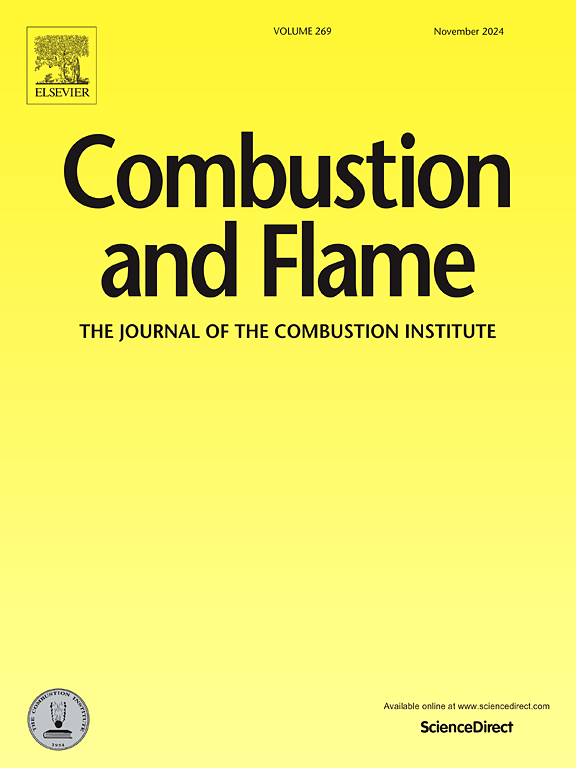Ignition delay time measurements and kinetic modeling for n-dodecane and methane blends at low-to-intermediate temperature conditions
Abstract
In this study, novel ignition delay times (IDTs) were experimentally measured for the n-dodecane/methane binary mixture with various n-dodecane content at the range of 5–20 bar and 600–1000 K, utilizing a heated rapid compression machine (RCM). Subsequently, a chemical kinetic model was developed for n-dodecane/methane binary mixture and widely validated by the experimental data including ignition delay times, laminar flame speeds, and speciation evolution in this study and the literature. The present model shows good predictive performance and was further applied in the kinetic analysis of the n-dodecane/methane binary mixture ignition characteristic. The results highlight a significant reactivity-promoting effect on the IDTs with the addition of n-dodecane through the low-temperature oxidation processes. This promoting effect is nonlinear and particularly notable in the NTC region. Additionally, the dilution gas component significantly influences the total IDTs at low-to-intermediate temperature conditions but shows less impact on the first-stage IDTs. The chemical effect of the dilution gas is minor at low-temperature conditions, while the thermodynamic effect plays a more important role in influencing the IDTs of the binary mixture.

 求助内容:
求助内容: 应助结果提醒方式:
应助结果提醒方式:


